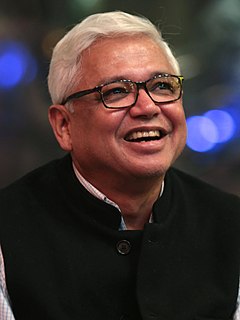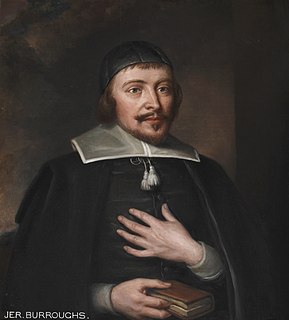A Quote by Amitav Ghosh
(He) was in love with the idea of revolution. Men like that, even when they turn their backs on their party and their comrades, can never let go of the idea: it's the secret god that rules their hearts. It is what makes them come alive; they revel in the danger, the exquisite pain. It is to them what childbirth is to a woman, or war to a mercenary.
Related Quotes
Men sometimes confess they love war because it puts them in touch with the experience of being alive. In going to the office every day, you don't get that experience, but suddenly in war, you are ripped back into being alive. Life is pain; life is suffering; and life is horror - but, by God, you are alive.
Ideas are floating like fish. Desire for an idea is like a bait on a hook. If you desire an idea, it pulls and it makes a kind of a bait. Ideas will come swimming up. And you don't know them until they enter the conscious mind. And then bingo! There it is! You know it instantly. And then more come in. If you go fishing for ideas, a lot of ideas will just pop in. And one of them will make you fall in love.
Trade is the natural enemy of all violent passions. Trade loves moderation, delights in compromise, and is most careful to avoid anger. It is patient, supple, and insinuating, only resorting to extreme measures in cases of absolute necessity. Trade makes men independent of one another and gives them a high idea of their personal importance: it leads them to want to manage their own affairs and teaches them to succeed therein. Hence it makes them inclined to liberty but disinclined to revolution.
It's just this: that there are places we all come from-deep-rooty-common places- that makes us who we are. And we disdain them or treat them lightly at our peril. We turn our backs on them at the risk of self-contempt. There is a sense in which we need to go home again-and can go home again. Not to recover home, no. But to sanctify memory.
Now this is a mystery to a carnal heart. They can see no such thing; perhaps they think God loves them when he prospers them and makes them rich, but they think God loves them not when he afflicts them. That is a mystery, but grace instructs men in that mystery, grace enables men to see love in the very frown of God's face, and so come to receive contentment.
A secret love is beautiful, sweet and sacred when it's just a light infatuation; but when that person reaches over and touches you in the heart, making it alive in a way it has never known, that secret love becomes frightening, because you can never make them love you, you would never want to make them love you...but all the same, no matter which way you view it, they don't love you...and your heart doesn't know how to beat the same.
Even if matter could do every outward thing that God does, the idea of it would not work as satisfactorily, because the chief callfor a God on modern men's part is for a being who will inwardly recognize them and judge them sympathetically. Matter disappoints this craving of our ego, so God remains for most men the truer hypothesis, and indeed remains so for definite pragmatic reasons.
The paradox of vengefulness is that it makes men dependent upon those who have harmed them, believing that their release from pain will come only when they make their tormentors suffer. In seeking the Bird's death to free himself, Louie had chained himself, once again, to his tyrant. During the war, the Bird had been unwilling to let go of Louie; after the war, Louie was unable to let go of the Bird.
Not my idea of God, but God. Not my idea of H., but H. Yes, and also not my idea of my neighbour, but my neighbour. For don't we often make this mistake as regards people who are still alive -- who are with us in the same room? Talking and acting not to the man himself but to the picture -- almost the précis -- we've made of him in our own minds? And he has to depart from it pretty widely before we even notice the fact.
I think that most people don't think in terms of an American revolution, they think in terms of a Russian revolution, or even a Ukrainian revolution. But the idea of an American revolution does not occur to most people. And when I came down to the movement milieu seventy-five years ago, the black movement was just starting, and the war in Europe had brought into being the "Double V for Victory" [campaign]: the idea was that we ought to win democracy abroad with democracy at home. And that was the beginning of an American revolution, and most people don't recognize that.
There's no love in my songs. There's just a lot of resentment. Just bad attitude. But that's intentional, that's what I like. I love the whole idea of Motown. Their idea was to sing how down on their luck they were, but the song implied hope that it would get better. I liked that idea, and I wanted to go even further with it.



































